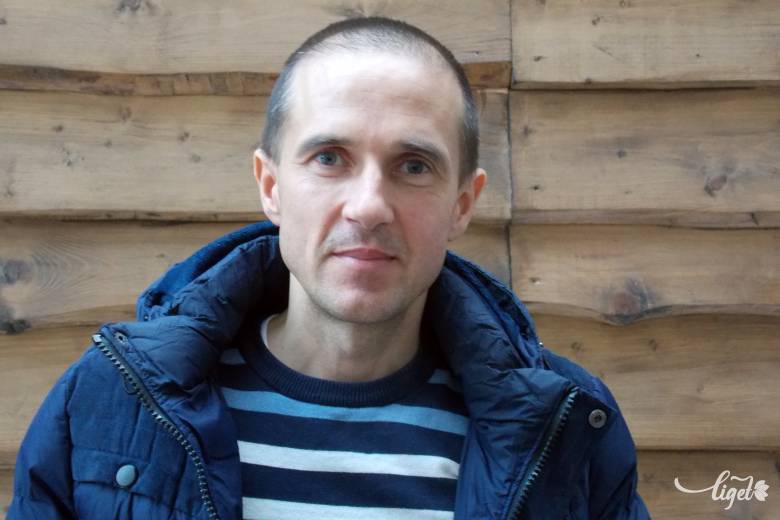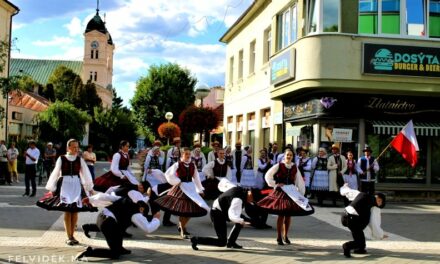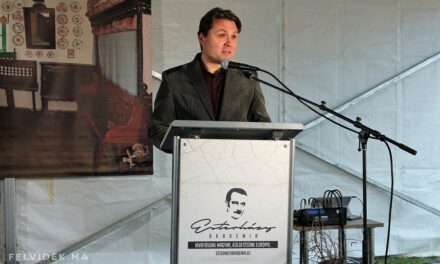László Edgár Varga talked with the editor-in-chief of the Székelyföld magazine on the Main Square.
The Székely man and his problems, the small town of Székely, life in Székelyland are at the center of your writings, which are authentically written in the Székely language, so to speak. For example, how well do readers in Hungary understand your writings, their language and problem-solving?
Landscape novels have always had a tradition in Hungarian literature, from Zsigmond Móricz to Áron Tamási and Imré Oravecz, with a little exaggeration (and holding on to the top), my writings can be linked to this line, but I am not so much interested in the countryside, but rather in the small town.
I don't see Székelyföld as exotic, but as a typical Hungarian region,
and I think that I only write in the "Székely language" (what is the Székely language?) so that anyone who knows a little Hungarian can understand it... And my character Lajos Laska (the main character of my short prose book of the same name) is a man of the world, who is a little exaggeration, it could live in any part of our planet. So, I tend to have a bowel movement, but only in a way.
How do you see the people of Székely, the people of Székely, the Székely Land?
Some people who only know it from the outside, as visitors, see Székelyföld as an enclosure, where time has stopped, where everything is as it used to be. I, who live in it, see that the Székely region is exposed to the same global challenges as any other region in Europe, that the people of Székely are also affected by many different influences, and are changing a lot with it. I try to "scan" these processes and changes as a writer.
I believe that the stereotypes about Székely people have largely lost their validity, the historical/social events of the past fifty years have brought about such national characterological changes in him.
The Székely is no longer narrow-minded, nor blunt, nor does he think that "a woman is not a person..." But then what? – it is a challenge for me to go around and depict this...
You have been the editor-in-chief of the Székelyföld magazine since 2020. It was never easy to maintain a literary and cultural newspaper. What challenges did you face in the current crisis?
Székelyföld is a stable, well-founded magazine (we celebrated its 25th anniversary in the fall), whose existence is not to be feared, but it is clear that the crisis is also making our operations difficult: paper prices have skyrocketed, and we have had to raise prices because of this - and the due to general impoverishment, insecurity, unstable economic environment - the number of our subscribers dropped slightly.
We know: if there is a problem, the money is withdrawn from the culture first...
In addition to the paper, we also publish books, which also slows us down a bit - also because of the above. But we are optimistic, we have further professional plans, and we want to realize them: the Székelyföld magazine plans for the long term!
The full interview HERE !
Featured image: liget.ro













